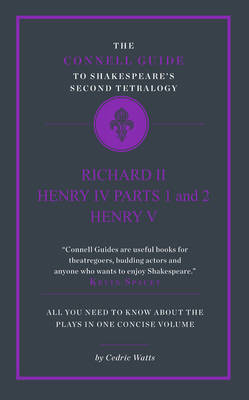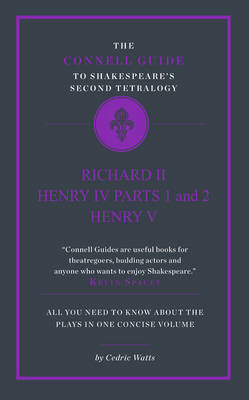
- Afhalen na 1 uur in een winkel met voorraad
- Gratis thuislevering in België vanaf € 30
- Ruim aanbod met 7 miljoen producten
- Afhalen na 1 uur in een winkel met voorraad
- Gratis thuislevering in België vanaf € 30
- Ruim aanbod met 7 miljoen producten
Zoeken
€ 12,95
+ 25 punten
Omschrijving
In his first tetralogy of history plays (Henry VI Parts 1, 2 and 3, and Richard III), Shakespeare offered the most extensive dramatic sequence since the great days of ancient Greek drama in Athens. Critics have sometimes disparaged this first tetralogy as episodic and amateurish. There are various lively scenes, and some characters radiate vitality--in Richard III, Shakespeare (defying historical fact) created a superbly memorable monster, the grotesque and arrogant villain whom audiences love to hate. But if the Shakespeare of the first tetralogy blithely embarrasses his modern fans by the abundance of jingoistic propaganda, his second tetralogy (Richard II, Henry IV Parts One and Two and Henry V) is much more sophisticated and ambiguous. Indeed, in view of the problems of censorship which he faced, Shakespeare provides remarkably incisive insights into the behaviour of kings and their followers and opponents. The second tetralogy is rich in characterisation, memorable in heroic and plangent rhetoric, crafty in its plotting, and exceptionally intelligent in the way it relates low life to high life, the small to the great, the farcical to the tragic. It is not simply a sequence of perennially entertaining plays; it is part of England's cultural identity, and continues to contribute to the shaping of that identity. The tetralogy dramatises nostalgia poignantly and critically; now it, too, forms part of the nation's cultural nostalgia. At the same time, it exposes the continuing wiles of politicians, and offers ever-topical warnings about the cost of military ventures overseas.
Specificaties
Betrokkenen
- Auteur(s):
- Uitgeverij:
Inhoud
- Aantal bladzijden:
- 160
- Taal:
- Engels
- Reeks:
Eigenschappen
- Productcode (EAN):
- 9781907776298
- Verschijningsdatum:
- 13/10/2020
- Uitvoering:
- Paperback
- Formaat:
- Trade paperback (VS)
- Afmetingen:
- 109 mm x 175 mm
- Gewicht:
- 204 g

Alleen bij Standaard Boekhandel
+ 25 punten op je klantenkaart van Standaard Boekhandel
Beoordelingen
We publiceren alleen reviews die voldoen aan de voorwaarden voor reviews. Bekijk onze voorwaarden voor reviews.











